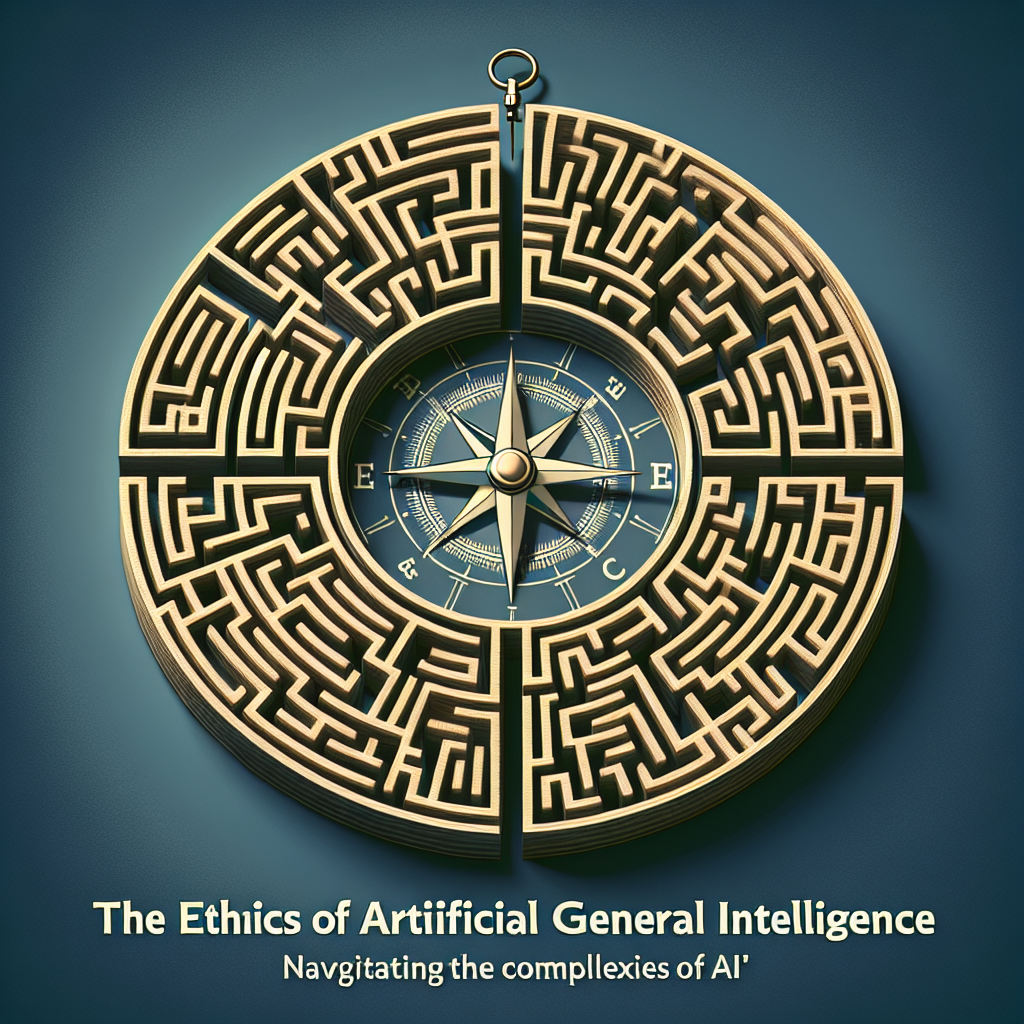The Ethics of Artificial General Intelligence: Navigating the Complexities of AI
Artificial General Intelligence (AGI) is a concept that has been the subject of much debate and speculation in recent years. AGI refers to artificial intelligence that has the ability to perform any intellectual task that a human can do. This level of AI has the potential to revolutionize industries, improve efficiency, and solve complex problems. However, the development of AGI also raises ethical concerns that must be carefully considered.
In this article, we will explore the complexities of AGI ethics and discuss the implications of developing AI that has the potential to surpass human intelligence. We will also address common questions and concerns surrounding the ethical implications of AGI.
Ethical Concerns of AGI
The development of AGI raises a number of ethical concerns that must be addressed in order to ensure that AI is developed and used responsibly. Some of the key ethical concerns include:
1. Control and Governance: One of the main concerns surrounding AGI is the issue of control and governance. If AI systems become more intelligent than humans, there is a risk that they could act in ways that are harmful or dangerous. It is essential that systems are designed with appropriate safeguards and oversight mechanisms to ensure that they are used ethically and responsibly.
2. Bias and Discrimination: AI systems are only as good as the data they are trained on, and there is a risk that biased or discriminatory data could lead to biased or discriminatory outcomes. It is important to ensure that AI systems are trained on diverse and representative data sets in order to minimize the risk of bias and discrimination.
3. Accountability and Transparency: AI systems are often complex and opaque, making it difficult to understand how they arrive at their decisions. This lack of transparency can make it challenging to hold AI systems accountable for their actions. It is important to develop mechanisms for ensuring transparency and accountability in AI systems.
4. Privacy and Security: AI systems have the potential to collect and analyze vast amounts of data, raising concerns about privacy and security. It is essential to develop robust privacy and security measures to protect individuals’ data and ensure that it is used responsibly.
5. Job Displacement: The development of AI has the potential to automate many jobs, leading to job displacement and economic disruption. It is important to consider the impact of AI on the workforce and develop strategies to mitigate the negative effects of automation.
Navigating the Complexities of AGI Ethics
Navigating the complexities of AGI ethics requires careful consideration and collaboration between technologists, policymakers, ethicists, and other stakeholders. Some key principles that can help guide ethical AI development include:
1. Ethical Design: AI systems should be designed with ethical considerations in mind, including principles such as fairness, transparency, accountability, and privacy. Designing systems with these principles in mind can help minimize the risk of ethical issues arising.
2. Stakeholder Engagement: It is essential to engage with a diverse range of stakeholders, including policymakers, ethicists, industry experts, and the general public, in order to ensure that AI systems are developed and used in a way that reflects societal values and priorities.
3. Regulation and Oversight: There is a need for robust regulation and oversight of AI systems to ensure that they are developed and used responsibly. This could include the development of ethical guidelines, standards, and regulatory frameworks that govern the development and deployment of AI.
4. Education and Awareness: Increasing public awareness and understanding of AI and its ethical implications is essential in order to foster informed public debate and decision-making around AI. Education and awareness-raising efforts can help build trust and confidence in AI systems.
5. Collaboration and Partnership: Collaboration and partnership between different stakeholders, including government, industry, academia, and civil society, is essential in order to address the complex ethical challenges of AI. By working together, stakeholders can develop solutions that reflect a diverse range of perspectives and priorities.
FAQs
Q: What is the difference between AGI and narrow AI?
A: AGI refers to artificial intelligence that has the ability to perform any intellectual task that a human can do, while narrow AI refers to AI that is designed to perform specific tasks or functions.
Q: What are some examples of ethical issues related to AI?
A: Some examples of ethical issues related to AI include bias and discrimination, privacy and security, accountability and transparency, and job displacement.
Q: How can we ensure that AI is developed and used ethically?
A: Ensuring that AI is developed and used ethically requires a combination of ethical design principles, stakeholder engagement, regulation and oversight, education and awareness, and collaboration and partnership.
Q: What are some potential benefits of AGI?
A: Some potential benefits of AGI include improved efficiency, increased productivity, better decision-making, and the ability to solve complex problems.
Q: What steps can individuals take to address the ethical implications of AI?
A: Individuals can educate themselves about the ethical implications of AI, engage in public debate and discussion, advocate for ethical AI development, and support efforts to regulate and oversee AI systems.
In conclusion, the development of AGI has the potential to bring about significant benefits, but also raises complex ethical challenges that must be carefully navigated. By considering the ethical implications of AI, engaging with diverse stakeholders, and developing robust regulation and oversight mechanisms, we can work together to ensure that AI is developed and used in a way that reflects our values and priorities.

